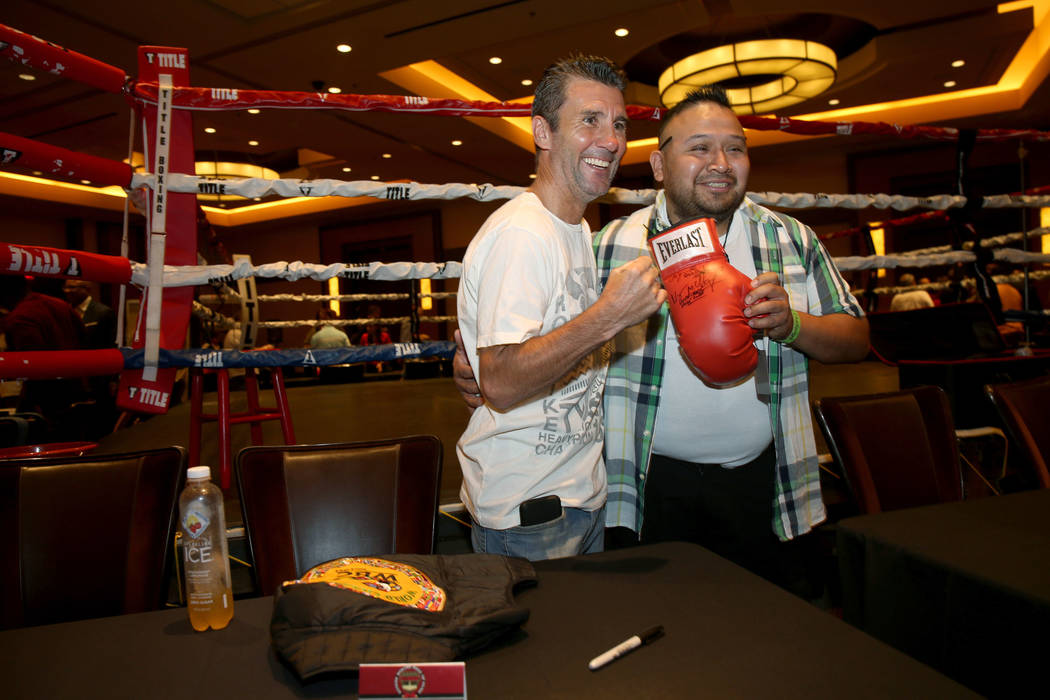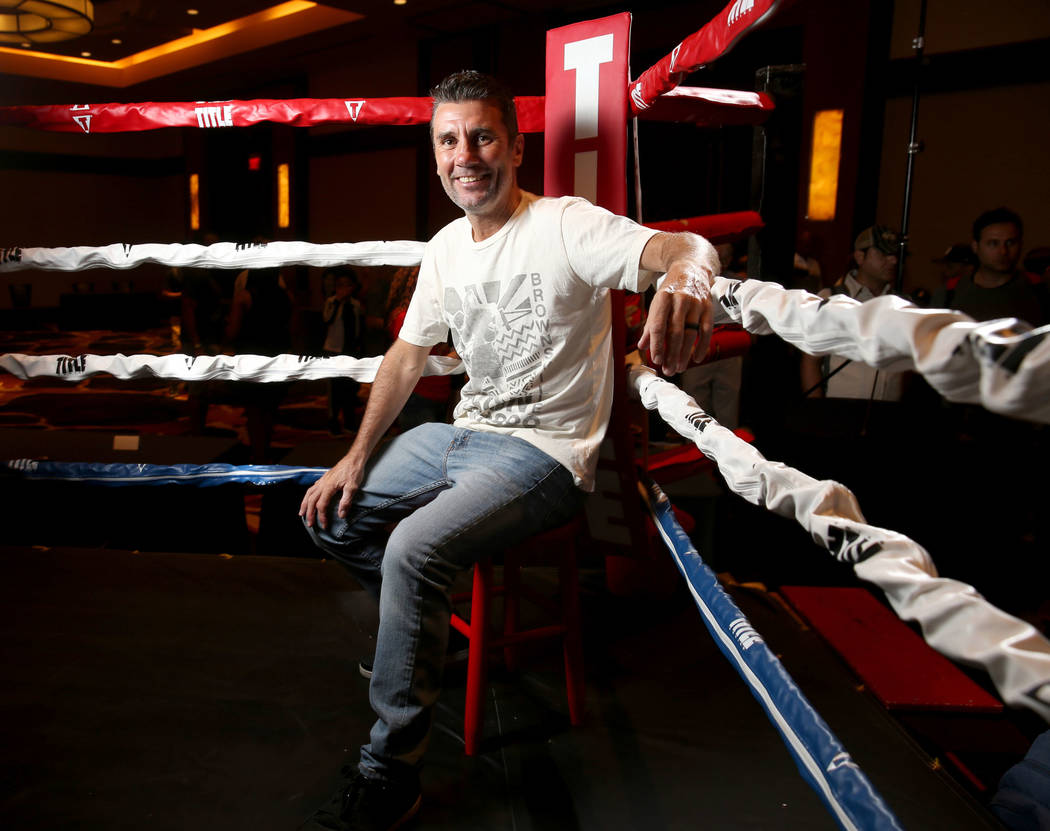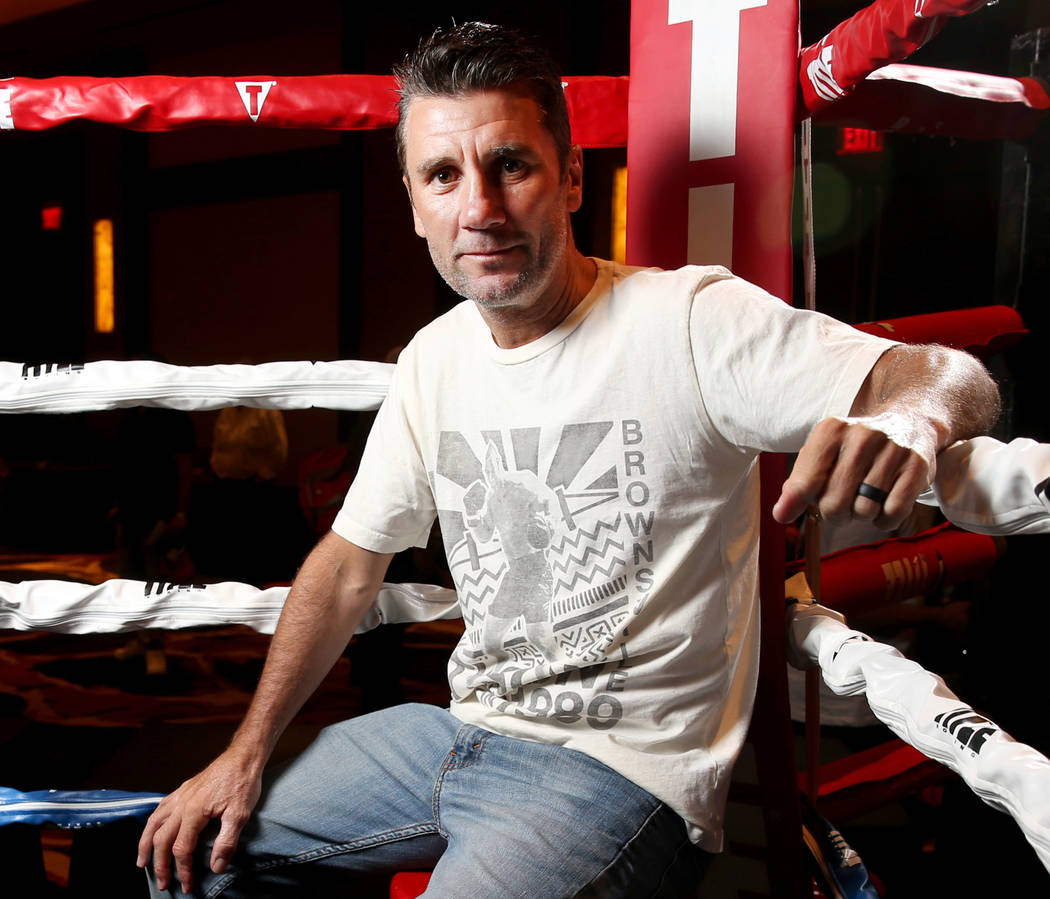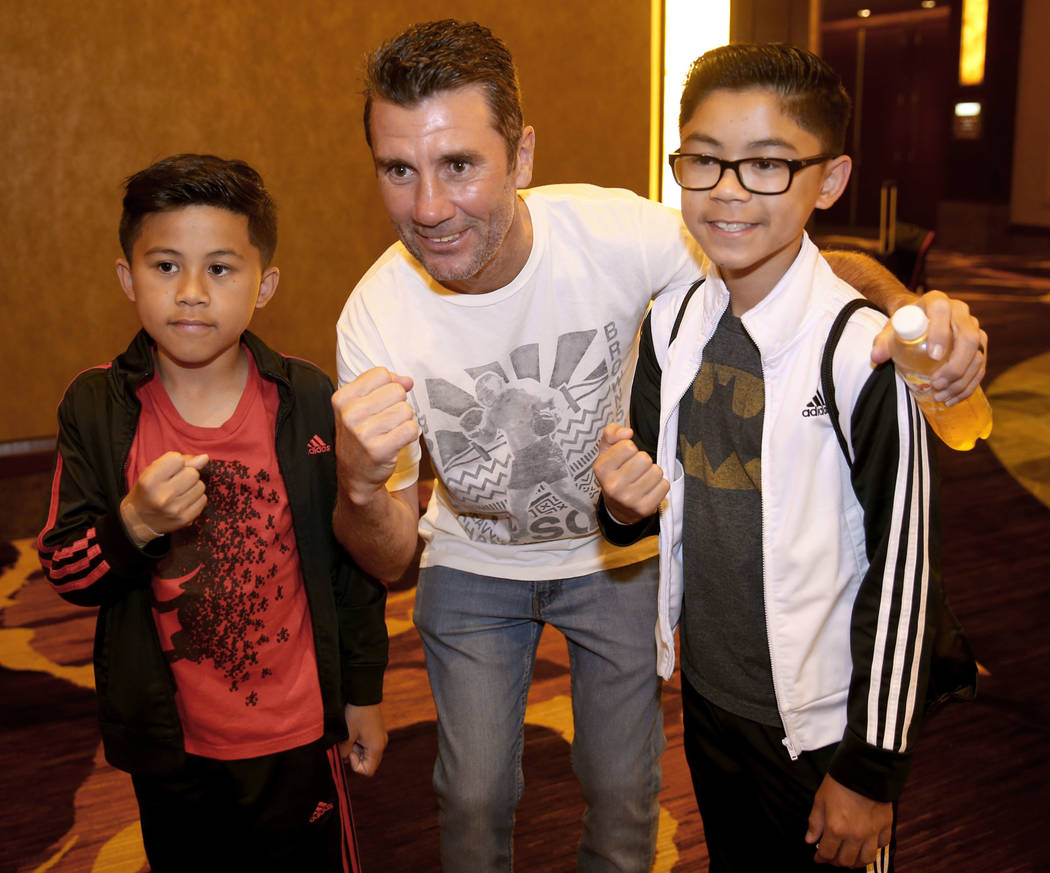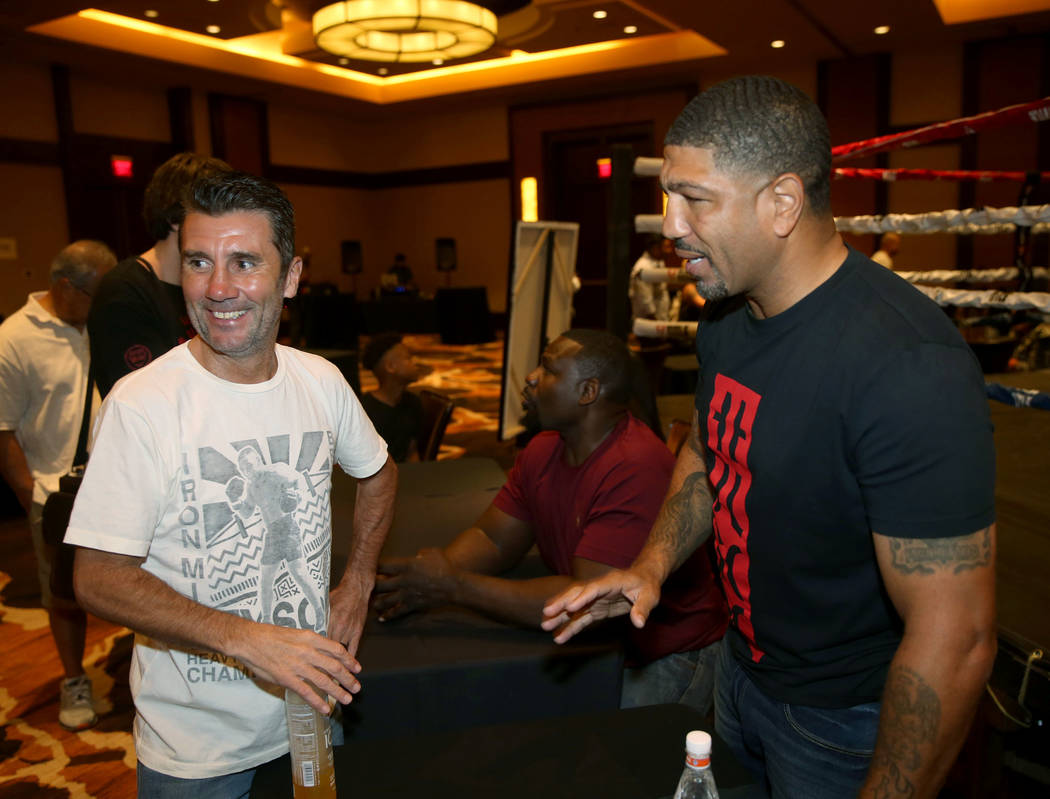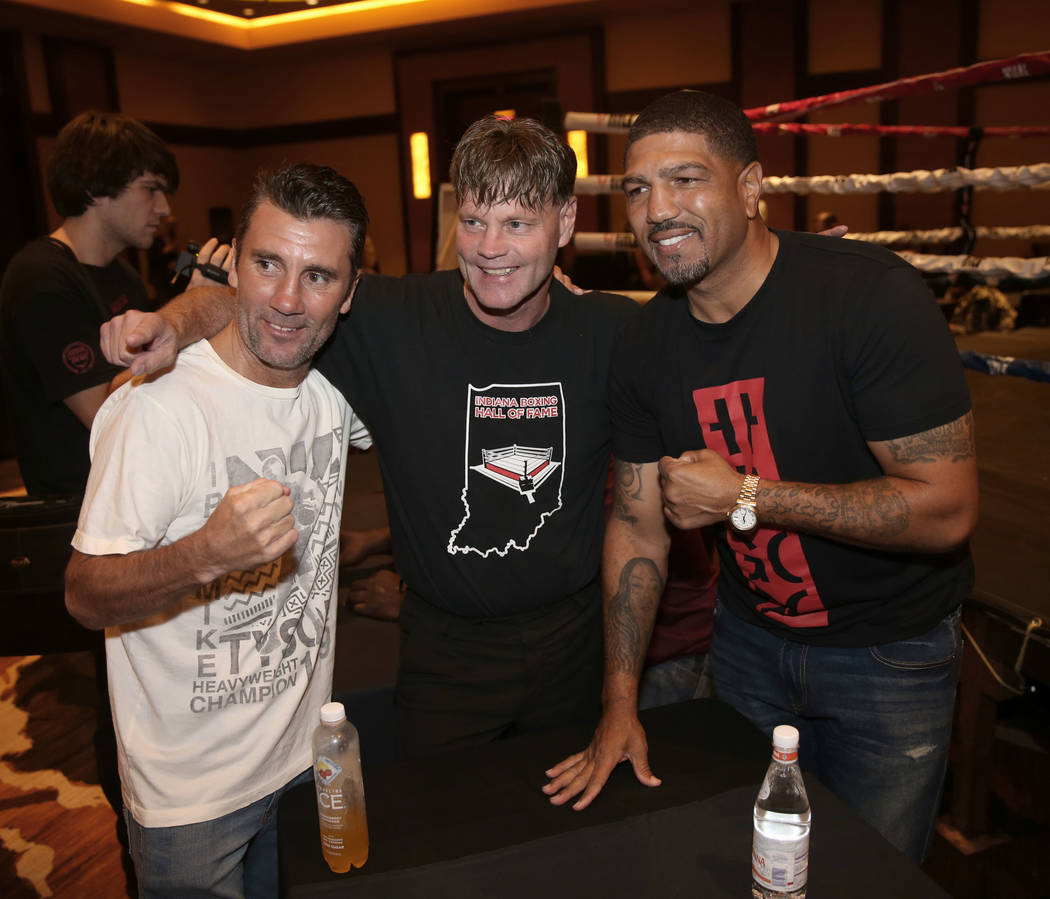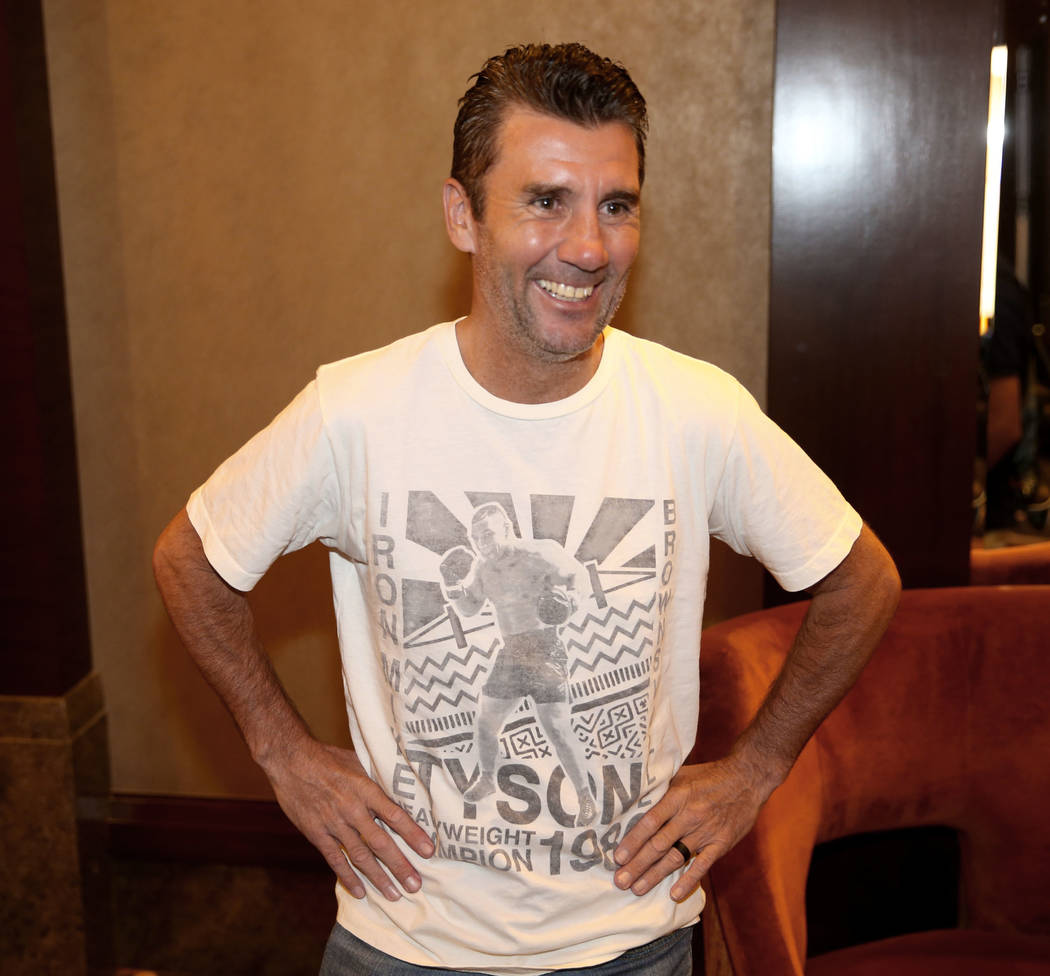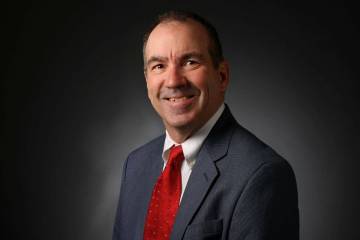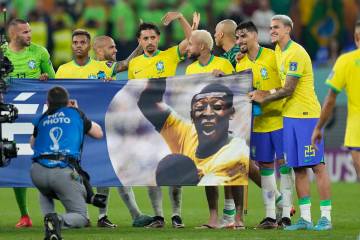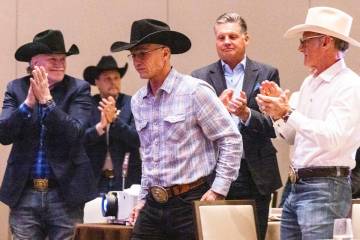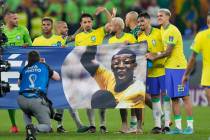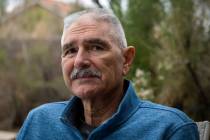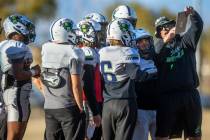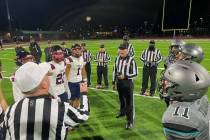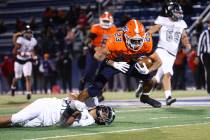Boxer Wayne McCullough recalls unrest as child in Northern Ireland
For much of his boxing life, when Wayne McCullough heard bombs bursting in air, it meant he was about to punch somebody in the nose. Or somebody was going to try to punch him in the nose. This would have been when he fought in the U.S. after “The Star-Spangled Banner” was played.
But when bombs burst in air during his formative years, usually it was literal. And sometimes they didn’t burst in air like they were supposed to.
McCullough, who will be among those inducted into the Nevada Boxing Hall of Fame on Saturday at Red Rock Resort, grew up in Belfast, Northern Ireland. During The Troubles. The bloody conflict pitted Northern Ireland unionists, who wanted to remain under British rule, against those seeking a unified Ireland.
It was Protestants versus Catholics, and it lasted 30 years. More than 3,500 were killed. More than half were innocent bystanders.
McCullough grew up on the Shankill Road, a gritty 1½-mile arterial in central Belfast where the working class lived. It was pretty much ground zero for The Troubles.
When he was 9 or 10, he vividly recalls a blast blowing out windows and ripping the roof off the community center upon which he and his mates played.
Somebody had made a bomb. It went off when it wasn’t supposed to.
Wayne McCullough said when he went inside, what remained of the guy’s head was stuck to the ceiling.
Unifying force
McCullough, 49, was speaking about terrorism and The Troubles — and how he mostly managed to stay out of them — in a hallway outside the Charleston Ballroom at Red Rock just before noon Friday. Local fight fans already were lining up to greet him and the other inductees. These included Joel Casamayor of Cuba, to whom McCullough lost the bantamweight gold medal match in the 1992 Barcelona Olympics. The two are close friends.
“I am a Protestant. I come from that area — UVW (Ulster Volunteer Force), UDA (Ulster Defence Association),” said McCullough, who still tips the scales at his fighting weight. “Most of my friends went in that direction; I could have gone in that direction.”
He said on Shankill Road when a bomb went off, guys would run toward the carnage instead of away from it, defying every human instinct and tenet of self-preservation.
“I’d proud of where I came from, but I’d think there’s got to be something better than this,” said boxing’s “Pocket Rocket,” who moved to Las Vegas after turning pro to train under the legendary Eddie Futch and still owns two homes in the valley.
Amateur boxing provided sanctuary and a demilitarized zone.
“I used to hang out with some Catholics through boxing, and there was never any problem,” the former WBC bantamweight champion said. “They knew I was the kind of guy who didn’t care if you were black, purple or silver.”
He became apolitical during a time when it was all but impossible. When the Republic of Ireland asked him to carry its flag into the Olympic Stadium in South Korea as a representative of two Irish nations, those on both sides of the dubiously named peace walls that separated Protestants from Catholics were incredulous.
They were just as gobsmacked when McCullough said yes.
“Where I came from, at that time, people said it was a death certificate,” he said.
And then Wayne McCullough’s Irish eyes began to smile.
“When I came back home, they had a parade for me,” he said. “They had a flute band and marched me down the Shankill Road and had a party for me at the Rangers (a Scottish soccer side favored by Protestants) supporters’ club. They were proud of me still.”
Never been down
When asked how he wanted to be remembered by fight fans, McCullough answered with the pace at which he used to throw punches.
“Just a guy who gave it everything. Win or lose, big fights or small fights. I never disrespected anybody,” he said.
He had 330 amateur fights, went to two Olympics, turned pro, fought around the world, won the WBC bantamweight title and successfully defended it twice. Fought Naseem Hamed in Atlantic City, fought Erik Morales in Detroit, fought anybody, anytime, anywhere. Finished his pro career 27-7, with four fights in Las Vegas, before retiring in 2008.
And never was knocked down.
Not even once.
Not even in the streets of Belfast when fists and Molotov cocktails were flying, and cars and pubs and way too many lives were being blown apart.
Contact Ron Kantowski at rkantowski@reviewjournal.com or 702-383-0352. Follow @ronkantowski on Twitter.
Class of 2019
The Nevada Boxing Hall of Fame will have its 2019 induction ceremony at 6 p.m. Saturday at Red Rock Resort. Here is the seventh class of honorees:
Boxers: Terry Norris, Leroy Haley, Wayne McCullough, Hasim Rahman, Juan Manuel Marquez, Bernard Hopkins, Vinny Paz, Humberto Gonzales, Winky Wright, Joel Casamayor, Bobby Chacon.
Nonboxers: Dan Goossen, Duane Ford, Dr. Edwin (Flip) Homansky, Floyd Mayweather Sr., Marc Risman.



